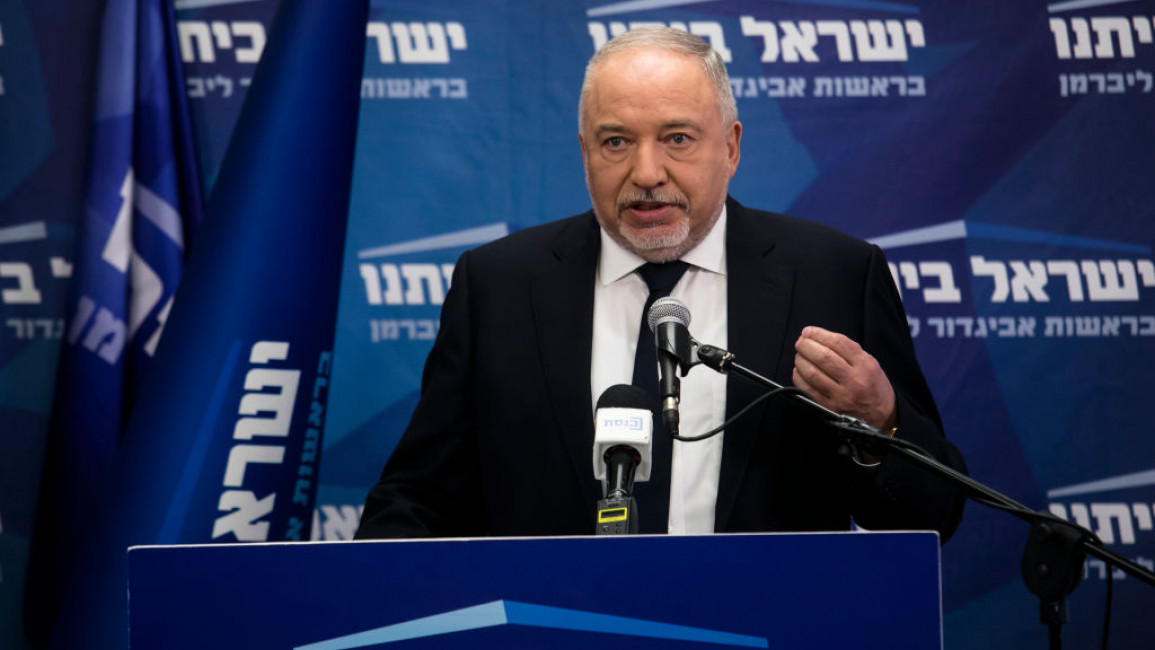Israel sets sights on 'Middle East common market' during Biden's controversial Saudi visit
Israeli Finance Minister Avigdor Lieberman said on Monday he hoped a regional visit by US President Joe Biden this week will lead to a common Middle East market that includes Saudi Arabia.
Biden arrives in Israel on Wednesday and continues to Saudi Arabia on Friday.
The White House said an aim of the visit includes "expanding regional economic and security cooperation".
Asked at an economic conference hosted by Calcalist newspaper what he expects to arise from Biden's visit, Lieberman said: "The creation of a new, common market in the Middle East. That's the big challenge."
"It will change the reality here from end to end, in both the fields of security and of economics. Therefore I hope the emphasis during Biden's visit will be on creating this new market in the Middle East."
Israel normalised relations with four Arab countries under a 2020 US diplomatic drive that received Riyadh's blessing despite uproar on the Arab street.
The agreements with the UAE, Bahrain, Morocco and Sudan were criticised by Palestinians and allies for reversing decades of Arab policy to isolate Israel for their systematic abuse of Palestinian communities and occupation of the West Bank.
Saudi Arabia has stopped short of formally recognising Israel in the absence of an independent Palestinian state.
In separate remarks to the conference, Israeli National Security Adviser Eyal Hulata said that within the framework of Biden's visit "it is certainly possible to begin talking about the potential expansion of our markets in the region".
"It's no coincidence that Biden is coming here on Wednesday and continuing on Friday from here to Saudi Arabia by direct flight," Haluta added. "The ability to attend to these things carefully, step by step, can bring about breakthroughs."
Lieberman said his regional vision would include "a kind of trans-Middle East highway" and rail network linking up partner countries.
Last month and amid heightened criticism from rights groups worldwide, Biden had sought to distance himself from the upcoming encounter with Saudi Crown Prince Mohammed bin Salman, stressing to reporters he was going to meet with King Salman and his team.
But the White House confirmed earlier this week that he will meet MBS as part of that larger delegation during the trip.
As a presidential candidate, Biden said the 2018 murder and dismemberment of Jamal Khashoggi - a Saudi-born US resident known for writing critical articles about the kingdom's rulers for The Washington Post -- had made the country a "pariah."
US intelligence findings released by the Biden administration identified bin Salman, often referred to as MBS, as the mastermind of the operation.
"I know that there are many who disagree with my decision to travel to Saudi Arabia. My views on human rights are clear and long-standing, and fundamental freedoms are always on the agenda when I travel abroad, as they will be during this trip," Biden wrote in a Washington Post opinion piece published Saturday.
"As president, it is my job to keep our country strong and secure," the US leader wrote Saturday in the Washington Post.
"We have to counter Russia's aggression, put ourselves in the best possible position to out-compete China, and work for greater stability in a consequential region of the world," he continued.
"To do these things, we have to engage directly with countries that can impact those outcomes. Saudi Arabia is one of them, and when I meet with Saudi leaders on Friday, my aim will be to strengthen a strategic partnership going forward that's based on mutual interests and responsibilities, while also holding true to fundamental American values."



